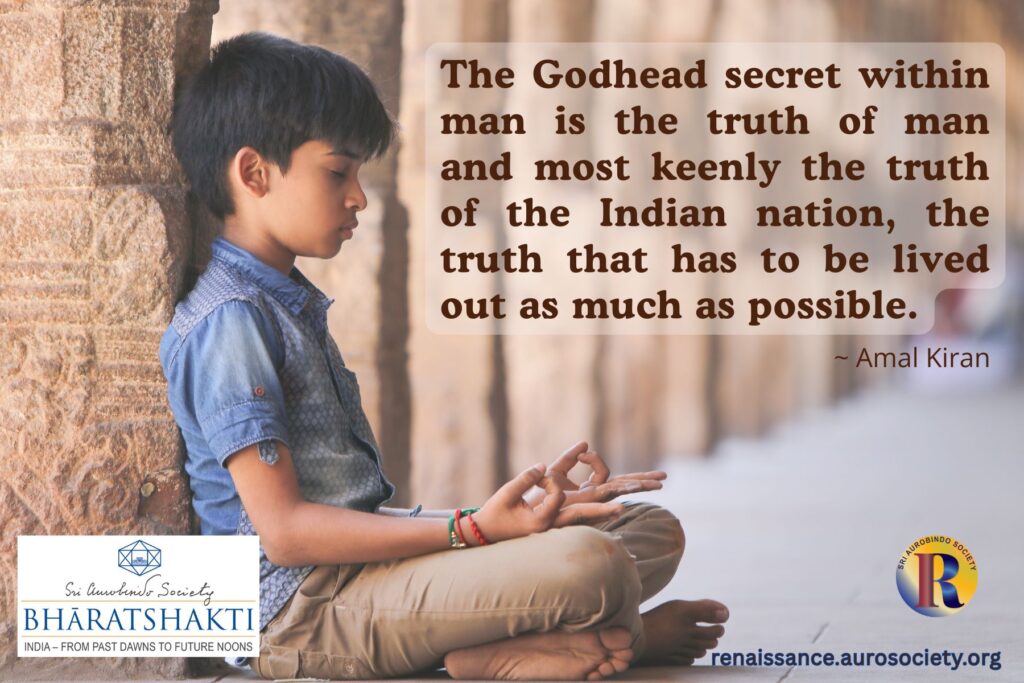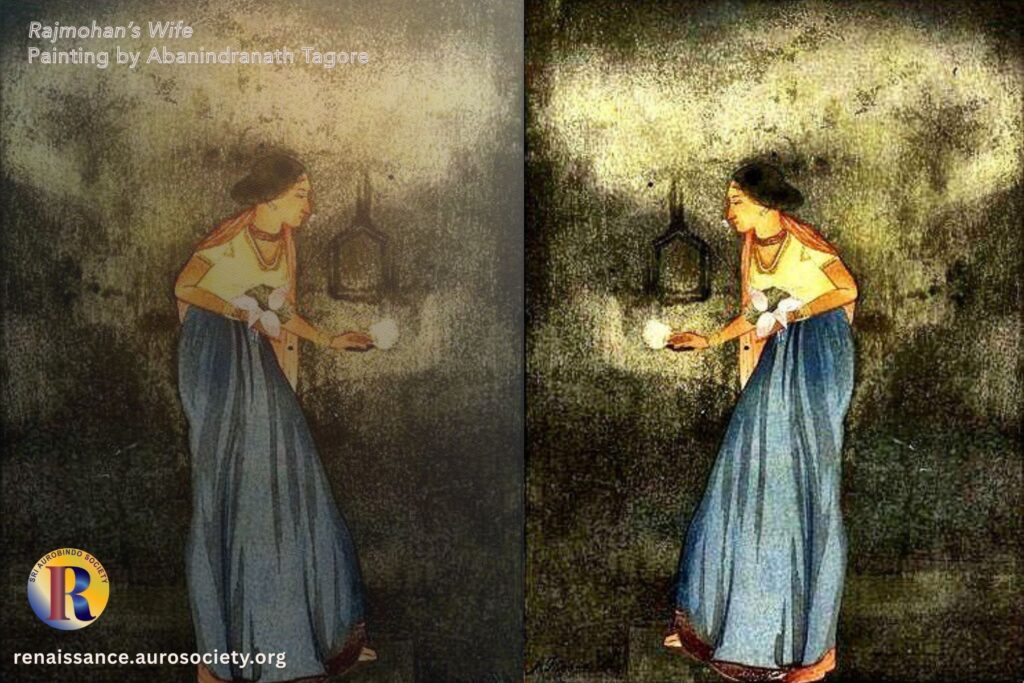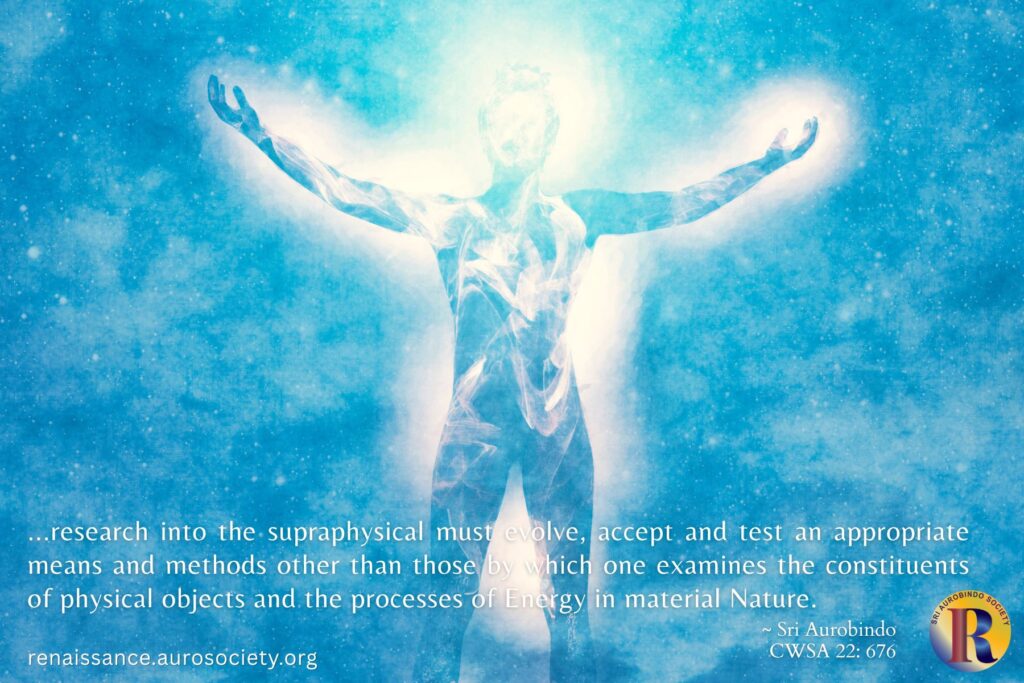Volume VI, Issue 6
Author: Samir Kanta Gupta
Editor’s Note: In honour of the World Music Day, celebrated on the same day as International Yoga Day, we bring for our readers this special feature in the current issue releasing on June 21, 2025.
In 1949, Ustad Alauddin Khan (8 October 1862 – 6 September 1972), the world-famous musician from Bengal, spent a few days at Sri Aurobindo Ashram. An expert in playing many Indian musical instruments with a special love for sarod, he was the founder of the Maihar gharana.
Guru of great musicians such as Ali Akbar Khan, Ravi Shankar and several others, Ustad Alauddin Khan was the most notable music teachers of the 20th century. During his visit to Pondicherry he had darshan of both Sri Aurobindo and the Mother. An eye-witness account says that his meeting with Sri Aurobindo lasted 30 minutes during which Sri Aurobindo was smiling most of the time.
When asked about his impressions after the darshan, Ustad Alauddin Khan said that Sri Aurobindo was Shiva Incarnate. In the Mother he saw Ma Kali whom he had been worshipping since his childhood. Ustad ji gave two sarod concerts — at Prasad House and Arogya House, one arranged in such a way so that Sri Aurobindo could also listen from his own room. The Mother also joined Sri Aurobindo in his room. Champaklal records the following in his dairy note dated 15 August 1949:
Sri Aurobindo sat on his cot in his room and heard Alauddin’s music. Alauddin was playing his instrument in Mrityunjoy’s room across the street. Alauddin had been very eager that Sri Aurobindo should listen to his music and hence this arrangement was made.
~ Champaklal Speaks, p. 165
In November 1949 issue of Mother India, Samir Kanta Gupta recounted his observations of meeting the maestro at the Ashram. We reproduce that article here, with a few formatting revisions for easier online reading.
Indian music, when there are good musicians, has almost always a psychic origin; for example, the rāgas have a psychic origin, they come from the psychic.
~ The Mother, CWM, Vol. 5, p. 67

Alauddin Khan: Master of Music
An artist of the first order, Alauddin Khan is hardly in need of an introduction to the lovers of music in India. Not only that, he has travelled far out in almost all the world capitals, barring probably only Moscow of Soviet Russia, and has gripped everywhere the hearts of men. It is natural therefore, that such a personality should be a living object of curiosity and attraction.
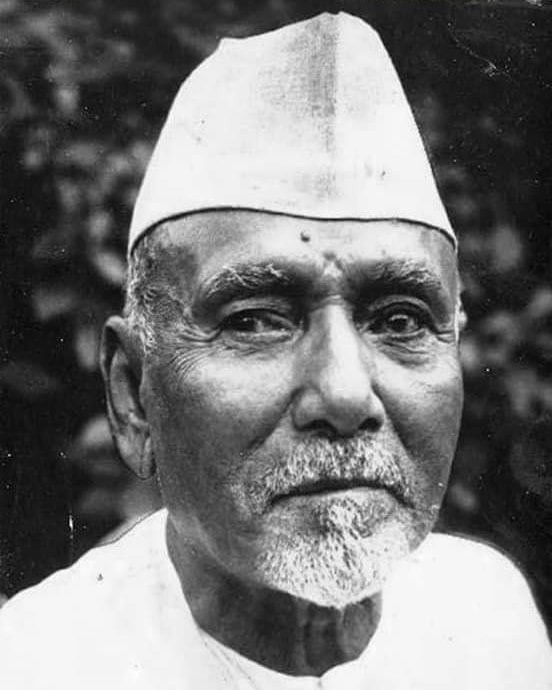
A life full of vicissitudes and painful hard labour leading ultimately to a high success is itself an extremely fascinating story. But of that afterwards, time and occasion permitting. At present I must content myself expressing the impression that this grand old man left on me, when very recently we met, even though only for a short span of three days.
I had not the good fortune of seeing Aladdin Khan in his hey-day, as they say. But stories are current about his unique performances; he could easily and irresistibly command a vast crowd of listeners, even while at their worst of moods, into a pin-drop silence.
Read:
Tagore on Music
But that he did, not by any over-bearing personality or dominating vital force but by a gentle persuasive power, an intimation, as it were, arising direct from the heart. Yes, from the heart and that is why perhaps the magic spell could be so effective all at once. It is also well known that Alauddin has no pretension of learning or the learned.
With this background the constant thought in my mind was: “Is he now the same Alauddin, at the pinnacle of his achievement, with all his powers intact? Has he not waned like the moon after reaching full glory? Is he going to act ‘The Last Minstrel’?” And what a pleasant surprise it was to find him play upon his sarod, his fond instrument, with utter ease and majestic elegance. After all, a genius is a genius and you can always expect some miracles from him!
Symbol of Old Bengal
It was the night of fourteenth August when the first soirée was arranged. It was rather a friendly gathering in a cosy little room. He came and took his seat in our midst. A free and frank conversation followed. Questions were lavished on him and he answered them in his own characteristic manner, tinged with humour and full of meaning.
In all this conversation how does he reveal himself? A man of curious mixture, by birth a Muslim and yet largely, very largely indeed, influenced by the Hindu way of life and of looking at things, Alauddin stands as the very symbol of the supremely simple Bengal of the olden times. Genial in temperament and generous as a happy grandfather well established in life he speaks to young men as if the latter were his intimate little friends.
I have just now said that Alauddin is out and out a Bengali. And he feels proud to have been so. In this connection I remember a small incident. It was the same night of the fourteenth. Various suggestions were coming from the audience, to play this particular rāga or that. Some one asked the musician to take up the rāga Bhairavi.
The soft and genial and humourous man suddenly stiffened and very seriously gave back:
“Now, at this hour? It will burn.”
“Burn? Burn what?”
“Here, everything in it,” and he pointed his finger towards his head. “Certain ragas can be played only at definite times of the day or night, in the midst of their natural surroundings. You can’t, if you are serious about your business, violate them on any plea whatsoever.”
“But must every musician care for all these rules of yours.”
“These are not mine, but universal truths, certain inviolable principles. If anybody disregards them, let him. We don’t do that, we Bengalis simply can’t.”
One may consider Alauddin as narrowly religious and incorrigibly superstitious. But whatever the argument for and against the controversial point, there is a deep truth underlying the formula which, I believe, the ancients set up with deep insight and purpose. Also, there is no denying the self-evident fact that Nature at different times inspires one in a different way to different moods.
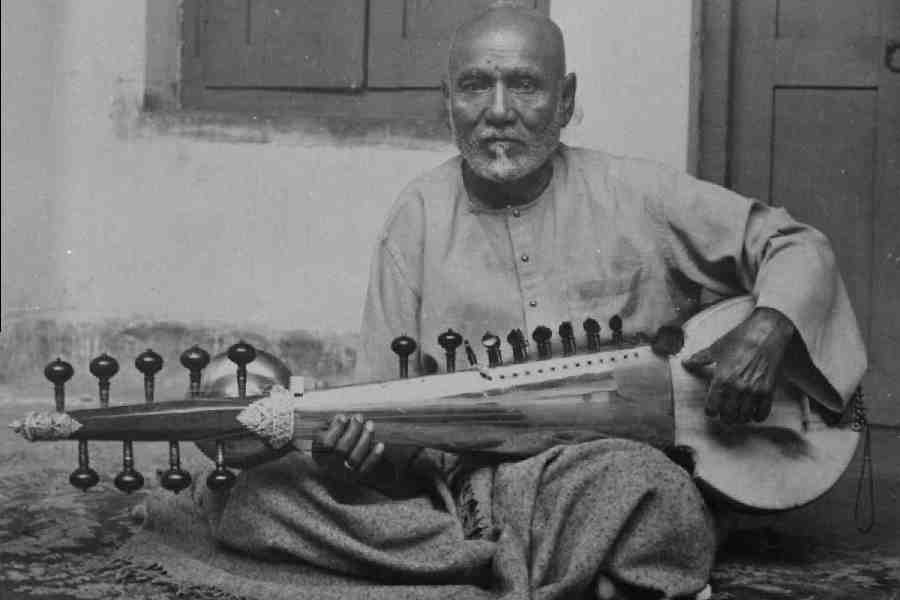
No Mere Technician but Sādhaka
Surely one is tempted to consider Alauddin as a rigid technician and an orthodox past master in the art. For, had he not left his home at the tender age of thirteen and spent a vagabond life in the sole company of his lyre for a long strenuous twenty-seven year? Does not too much of technique stultify the finer living breath that is at the bottom of every great creation? The answer is that Alauddin is not merely a hundred percent technician.
The emotion of a Bengali is too predominantly present in him. A sādhaka, a warm worshipper, of the myriad Hindu gods and goddesses, a disciple of Kali, Alauddin is no champion of Art for Art’s Sake. The last meeting with him is vivid in my memory. It could very well be described as a scene of dedication.
Plunged in trance, the artist offered his ardent devotion to the Master, Sri Aurobindo, whom he described as Shiva incarnate. Sound sprang from the strings of his lyre like the white leaping flames of Agni and reached the gates of Heaven. To an old man of 79, youth had come back as if in a flash. His fingers moved with the speed of lightning and faultless accuracy. There was Death dispelled for a while. There was for a while a feast of delight.
Read:
The Mother on Art and Yoga
On another occasion this great musician remarked, one can excuse his modesty no doubt, that he was still very far away from his goal. “My mind travels faster” he said, “but my fingers fail to keep pace with it. No, that is far from the perfect perfection I seek. Moreover, through my music I want to merge into and be one with the Source of all rhythm and sound, dhvani. I am still on the way. I don not know if I will ever reach the land of my heart’s desire.”
This may raise a question of psychological importance, which we do not intend for the present to discuss. But this much can be said that the crucial problem of every domain takes one right into the field of spiritual knowledge and Yoga. For that alone can reveal all the minute, subtle and intricate knowledge of the individual and his relation with the One.
~ Design: Beloo Mehra

